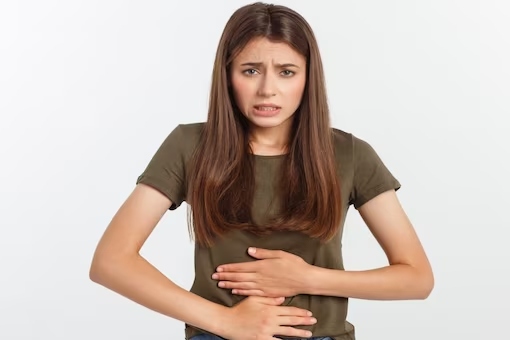Crohn’s disease is an incurable inflammatory disorder that can affect any part of the gastrointestinal tract. The gastrointestinal tract helps in digesting food, absorbing nutrients and expelling what’s not needed. Inflammation (red, swollen, and tender areas) always affects the innermost lining of the gastrointestinal tract, called the mucosa. However, the disease can affect the deeper layers of the gastrointestinal wall and even extend through the entire bowel wall.
It is seen that Crohn’s disease may recur at various times over a lifetime. Some people have long periods of remission, sometimes for years, when they are free of symptoms. Medically, it’s difficult to ascertain when a remission may occur.
SYMPTOMS OF CROHN’S DISEASE
Crohn’s disease can present as abdominal disease, anorectal (anus and rectum) disease, or both. Patients with Crohn’s disease are at greater risk of developing a fistula. A fistula is a small tunnel that tracks from one portion of bowel to either another portion of bowel, another organ, or the skin. Symptoms aren’t the same for every patient, and they appear and disappear over a sustained period. These include:
- Abdominal cramping
- Abdominal pain
- Ongoing diarrhoea
- Chronic constipation
- Bleeding with bowel movements
- Fever
- Extreme tiredness
- Weight loss
- Drainage from the skin around the anus
- Abscesses (infections) around the anus that come back
- Anal fissures
WHOM DOES IT AFFECT?
Most of the patients are young adults between 16 and 40 years old, though it can affect any age group. Crohn’s disease occurs most commonly in people living in northern climates in context to India, there by indicating an element of genetic predisposition due to migration and the Aryan descent.
It is common among men more than women. About 20 percent of people with Crohn’s disease have a relative, most often a brother or sister, and sometimes a parent or child, with some form of inflammatory bowel disease.
Crohn’s disease and a similar condition called ulcerative colitis are often grouped together as inflammatory bowel disease.
WHAT CAUSES CROHN’S DISEASE?
The exact cause is not known. However, current theories centre on an immunologic (the body’s defense system) and/or bacterial cause. While it can’t be termed as contagious, it exhibits a slight inherited tendency. An x-ray study of the small intestine may be used to diagnose Crohn’s disease.
HOW IS CROHN’S DISEASE TREATED?
Medical Treatment
Medications are always the first option unless emergency surgery is required. Several treatment approaches are used at the onset and for the long term to help patients control their disease. The most common initial therapy includes anti-inflammatory medications. Diet and lifestyle changes can also help.
Surgical Treatment
When patients develop disease-related abdominal and anorectal complications, surgery may be required. When a patient has either a perforation (a hole in their bowel) or a blockage of the bowel, an emergency operation is advised. Both of these conditions can be life-threatening. Immediate surgery may also be required for an abscess near the anus.
Abdominal surgery
When the patient’s symptoms can no longer be controlled with medications, surgery is recommended. Upon discovering that a section of the bowel is either too scarred or narrow to function properly, surgical help is sought. The surgery can be performed either through an open approach or a minimally invasive approach. Your surgeon will decide on the safest approach based on your individual case.
The most common procedure is removal of the last portion of the small bowel and the first portion of the large bowel to relieve an abnormal, narrowed section (called an ileocolic). Following removal of this part of the bowel, the remaining bowel is reconnected if possible. The end of the bowel can also be brought out through a surgical opening in the skin of the abdominal wall. This procedure (called an ostomy) redirects waste (faeces) from the bowels.
Anorectal surgery: This is most commonly done to open and drain anorectal abscesses. A Seton (small drain) may be left in place for a period of time until the infection clears up. Surgery is also used to treat anorectal fistulas. In severe cases, in combination with this procedure, an ostomy may be created.
Not all with these or other complications require surgery. The decision by your gastroenterologist and colo rectal surgery is best.
How Can I Reduce Recurrence?
It is vital to follow the physician’s advice strictly, as it can recur in patients who stop taking their medications. Since smoking presents health risks, quitting the habit is heavily recommended. For patients with Crohn’s disease, smoking has been linked to higher recurrence rates, so quitting can reduce this risk.


